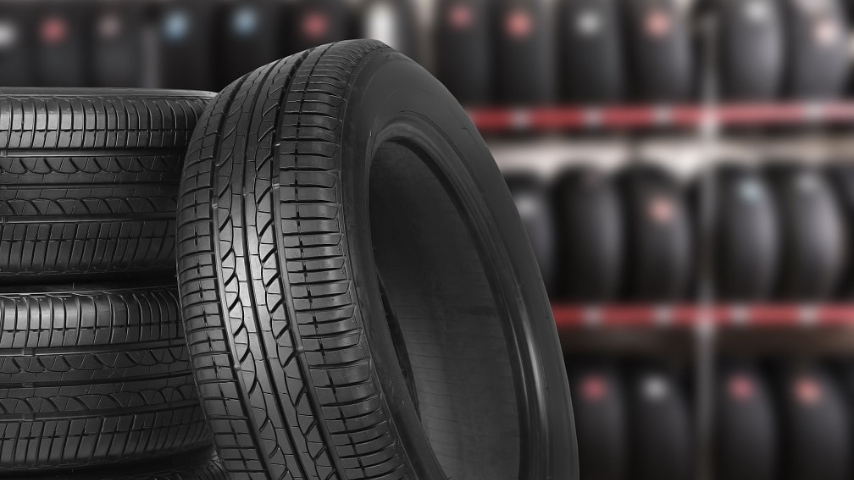Fuel-Efficient Driving Techniques: Tips for Optimizing Mileage
**Fuel Efficiency: Strategies for Maximizing Mileage and Minimizing Costs**
Fuel efficiency is a crucial aspect of vehicle ownership, impacting both environmental sustainability and financial well-being. By adopting fuel-efficient driving techniques, motorists can significantly enhance their mileage and reduce fuel consumption.
One key strategy is to maintain a steady speed. Rapid acceleration and deceleration consume excessive fuel. Instead, accelerate gradually and maintain a consistent speed, especially on highways. Additionally, anticipate traffic conditions and adjust speed accordingly to avoid unnecessary braking and acceleration.
Another effective technique is to reduce idling time. When stopped for extended periods, such as at traffic lights or railroad crossings, turn off the engine. Idling wastes fuel and contributes to emissions.
Proper tire maintenance also plays a vital role in fuel efficiency. Underinflated tires increase rolling resistance, resulting in higher fuel consumption. Regularly check tire pressure and inflate them to the manufacturer’s recommended levels.
Furthermore, avoid carrying unnecessary weight in the vehicle. Excess weight increases fuel consumption. Remove any non-essential items from the trunk or cargo area.
Additionally, consider using cruise control on highways. Cruise control maintains a constant speed, reducing the need for frequent acceleration and deceleration. However, it is important to use cruise control responsibly, especially in inclement weather or heavy traffic.
Finally, plan your trips efficiently. Combine errands and avoid unnecessary driving. Consider carpooling or using public transportation when possible. By reducing the number of trips, you can significantly save on fuel costs.
In conclusion, adopting fuel-efficient driving techniques can dramatically improve mileage and minimize fuel consumption. By maintaining a steady speed, reducing idling time, maintaining proper tire pressure, avoiding excess weight, using cruise control wisely, and planning trips efficiently, motorists can enjoy significant savings and contribute to environmental protection.
Vehicle Maintenance for Fuel Efficiency: Essential Checks and Upgrades
**Fuel Efficiency: Strategies for Maximizing Mileage and Minimizing Costs**
Fuel efficiency is a crucial aspect of vehicle ownership, impacting both environmental sustainability and financial well-being. By implementing effective strategies, drivers can significantly improve their mileage and reduce fuel expenses.
One essential step is regular vehicle maintenance. Proper tire inflation, for instance, can reduce rolling resistance and enhance fuel economy. Additionally, timely oil changes ensure optimal engine performance, minimizing friction and improving fuel efficiency.
Upgrading certain vehicle components can also yield substantial benefits. Installing a high-efficiency air filter allows for better airflow, reducing engine strain and improving fuel consumption. Similarly, replacing spark plugs with high-performance ones can optimize ignition and enhance combustion efficiency.
Driving habits play a significant role in fuel efficiency. Maintaining a steady speed, avoiding rapid acceleration and deceleration, and using cruise control on highways can all contribute to improved mileage. Additionally, reducing unnecessary weight in the vehicle, such as excess cargo or roof racks, can lighten the load and improve fuel economy.
Fuel type selection is another important consideration. Higher-octane fuels, while more expensive, can improve engine performance and potentially increase fuel efficiency in certain vehicles. However, it’s essential to consult the vehicle’s owner’s manual to determine the recommended fuel type.
Furthermore, utilizing fuel-saving technologies can further enhance mileage. Hybrid and electric vehicles offer significant fuel savings compared to traditional gasoline-powered vehicles. Additionally, installing a fuel-saving device, such as a fuel injector cleaner or a fuel additive, can help improve combustion efficiency and reduce fuel consumption.
By implementing these strategies, drivers can effectively maximize their vehicle’s fuel efficiency. Regular maintenance, component upgrades, mindful driving habits, fuel type selection, and the use of fuel-saving technologies all contribute to reducing fuel expenses and promoting environmental sustainability.
Alternative Fuel Options: Exploring Cost-Effective and Environmentally Friendly Choices
**Fuel Efficiency: Strategies for Maximizing Mileage and Minimizing Costs**
In an era of rising fuel prices and environmental concerns, maximizing fuel efficiency has become paramount. By implementing effective strategies, drivers can significantly reduce their fuel consumption and save money while minimizing their carbon footprint.
One crucial aspect of fuel efficiency is vehicle maintenance. Regular oil changes, tire rotations, and air filter replacements ensure optimal engine performance and reduce friction, leading to improved mileage. Additionally, maintaining proper tire pressure can minimize rolling resistance, further enhancing fuel efficiency.
Driving habits also play a significant role. Avoiding aggressive acceleration and braking, maintaining a steady speed, and using cruise control on highways can reduce fuel consumption. Additionally, anticipating traffic conditions and avoiding idling can minimize unnecessary fuel waste.
Vehicle choice is another important factor. Smaller, lighter vehicles generally have better fuel economy than larger, heavier ones. Consider purchasing a fuel-efficient model or exploring alternative fuel options such as hybrid or electric vehicles.
Hybrid vehicles combine a gasoline engine with an electric motor, allowing for both fuel-powered and electric-powered driving. Electric vehicles, on the other hand, rely solely on electricity, eliminating fuel consumption altogether. While the initial cost of these vehicles may be higher, the long-term savings on fuel can be substantial.
In addition to vehicle-specific strategies, there are also external factors that can impact fuel efficiency. Driving during off-peak hours, avoiding congested areas, and using public transportation or carpooling can reduce fuel consumption by minimizing time spent in traffic.
Furthermore, utilizing fuel-saving apps and devices can provide real-time feedback on driving habits and suggest ways to improve fuel efficiency. These apps can track mileage, identify areas for improvement, and offer personalized recommendations.
By implementing these strategies, drivers can maximize their mileage, minimize fuel costs, and contribute to environmental sustainability. Remember, every gallon of fuel saved not only reduces expenses but also helps protect the planet for future generations.









